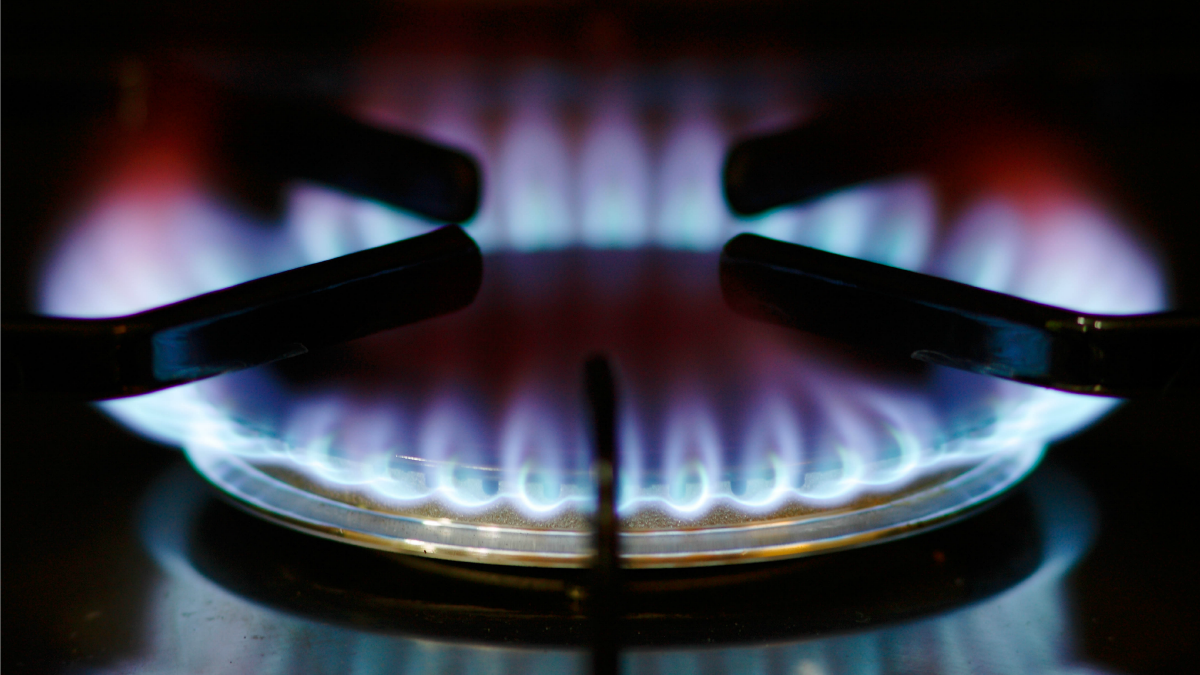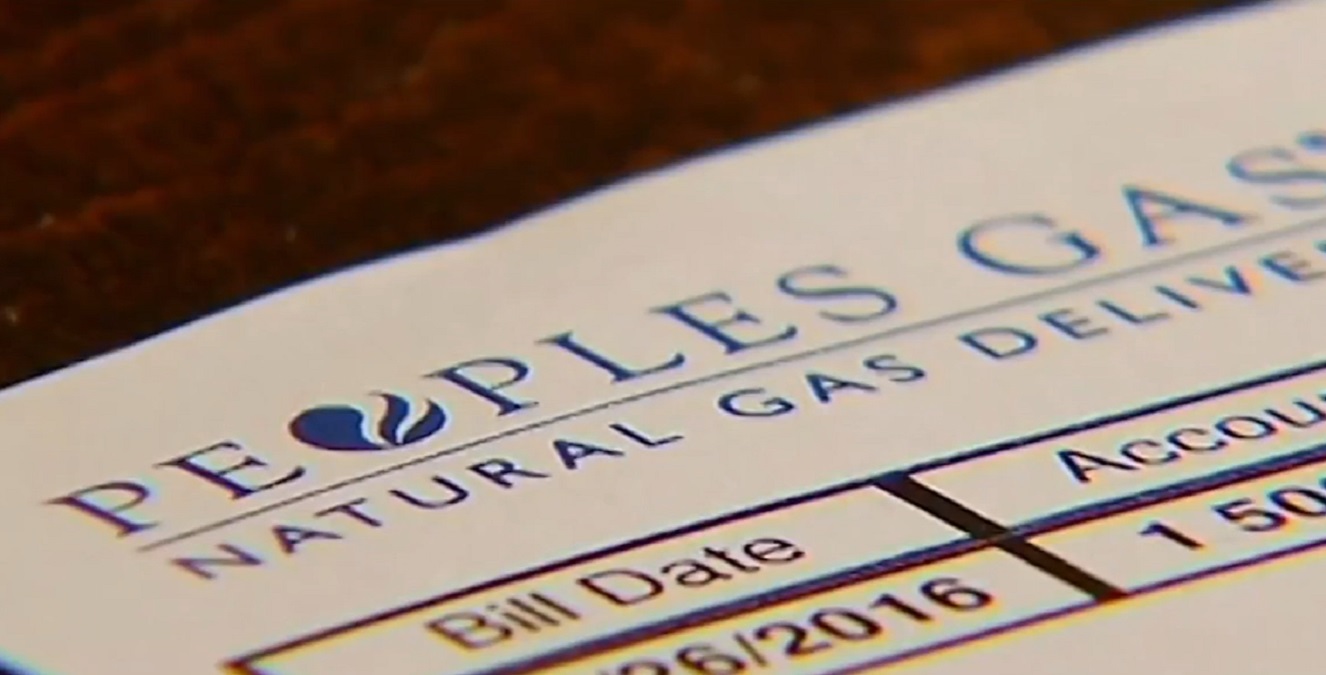For years, Peoples Gas has been working to replace old and outdated pipes across Chicago. While costs have gone up and deadlines have been pushed back in the time since, the project remains far from completion.
Earlier this year, the Illinois Commerce Commission, or ICC, ordered an investigation of Peoples Gas. Now, brand new testimony is revealing concerns about costs and safety associated with the “System Modernization Program," or SMP. It began in 2011 to replace the city’s aging iron gas pipes.
The purpose is to prevent a disaster, such as the 1992 Peoples Gas line explosion that killed four people in Chicago's River West neighborhood. Yet 13 years after the ICC ordered the project, work is far from over.
Abe Scarr is a program director of the Illinois Public Interest Research Group, or PIRG. The group is one of the entities the ICC assigned to assess the gas line replacement project. PIRG filed testimony of its findings last week, and Scarr spoke with NBC 5 Responds about the findings.
“Instead of running a targeted program, to address the specific risks that this is supposed to be about these old iron pipes that are at heightened risk of failure, [Peoples] Gas has been doing a lot of different things, basically overhauling its entire system," Scarr said. "And that means it's spending a lot more money but not accomplishing the public safety objectives [it's] supposed to be all about.”
In its testimony to the ICC, PIRG said the System Modernization Program needs to become focused.
“We hope if they do that, that People's Gas can accomplish greater reductions in risk and make us all safer. While costing us significantly less this program directly leads to big increases in our bills that led to the largest rate increase in Illinois history for gas utility last year," Scarr said.
A gas line expert from the City of Chicago also assessed the System Modernization Program.
“PGL’s SMP has not resulted in the prioritization of safety and, thus, does not lead to the most practical, cost-effective, and expedient retirement of unsafe leak prone pipes," the expert said in a written testimony.
Feeling out of the loop? We'll catch you up on the Chicago news you need to know. Sign up for the weekly Chicago Catch-Up newsletter.
The Illinois Attorney General's office has also expressed concern about the program’s cost.
“Costs have ballooned from the original 2007 forecast of $1billion to current estimates ranging from $10 billion up to PGL’s forecast of $19 billion… all while the pace of work is lagging the original forecast on the scale of a decade," the office said in a testimony.
Peoples Gas issued a statement to NBC 5 Responds in response to the testimony.
“The original cost estimate was made years before Peoples Gas’ current owner took over management of the company, and that estimate was far off the mark. When our current management arrived in 2015, they quickly provided the ICC with an accurate cost estimate of 8 to 11 billion dollars for the full 30-year plan. Ever since then, work has been on budget and on schedule. We’re always looking for ways to do this critical work as efficiently as possible, and we’ve provided state regulators with potential alternatives to consider, including looking at new ways to prioritize and target infrastructure at greatest risk, and prioritizing work in parts of the city most economically vulnerable.”
The Illinois Commerce Commission’s investigation is expected to conclude in early 2025.
In a statement to NBC 5 Responds, Peoples Gas said the program is "right on track for the target completion date of 2040 that had been approved by state regulators."
Peoples Gas’ complete responses to testimony excerpts, filed in June 2024:
Testimony from the City of Chicago inspector:
“My biggest concern is that PGL’s SMP has not resulted in the prioritization of safety and, thus, does not lead to the most practical, cost-effective, and expedient retirement of unsafe leak prone pipe.”
Peoples Gas Response:
“Every part of our work to modernize Chicago’s system — which dates back to the 1800s — has been needed for safety, reliability, and to protect the environment. Leaks are being eliminated.
We’re always looking for ways to do this critical work as efficiently as possible, and we’ve provided state regulators with potential alternatives to consider, including looking at new ways to prioritize and target infrastructure at greatest risk, and prioritizing work in parts of the city most economically vulnerable.”
In testimony filed by the ICC, a gas engineer stated:
“The Commission should direct Peoples to consider accelerating the SMP to be completed by 2030.”
Peoples Gas Response:
“The position of the ICC’s Safety Staff reflects their ongoing support for continuing the critical work of removing rapidly corroding pipes that date as far back as the 1800’s. At the end of last year, prior to the ICC’s pause of the program, the modernization was 38 percent complete — right on track for the target completion date of 2040 that had been approved by state regulators.
The idea of accelerating the needed work mirrors a suggestion made by an independent engineering study the ICC ordered five years ago. The challenges with setting a completion date of 2030 are cost and the logistics of doing that much large-scale construction all at once. The last time such an acceleration was considered, the ICC and our experts ended up agreeing it wasn’t workable, and we developed a plan to schedule work based on how close the pipes in each neighborhood are to the end of their useful lives. That said, completing work earlier than 2040 could be workable, and we’ve shared ideas with the ICC about ways to move forward. It’s also important to note the current ICC-mandated pause on construction and the additional time it will take to ramp work back up will need to be factored into any target completion date that’s set.”
In testimony from the IL Office of Attorney General, the panel stated:
“PGL has demonstrated that it cannot accurately forecast the cost or time to complete the SMP. Costs have ballooned from the original 2007 forecast of $1billion to current estimates ranging from $10 billion up to PGL’s forecast of $19 billion for just the cast iron pipe replacement portion of the SMP, all while the pace of work is lagging the original forecast on the scale of a decade.”
Peoples Gas Response:
“Part of this is misleading, and part is flat out false. Here’s the full truth: The original cost estimate was made years before Peoples Gas’ current owner took over management of the company, and that estimate was far off the mark. When our current management arrived in 2015, they quickly provided the ICC with an accurate cost estimate of 8 to 11 billion dollars for the full 30-year plan. Ever since then, work has been on budget and on schedule. At the end of last year, in fact, costs were on track to hit the low end of the estimate for the overall modernization.”



